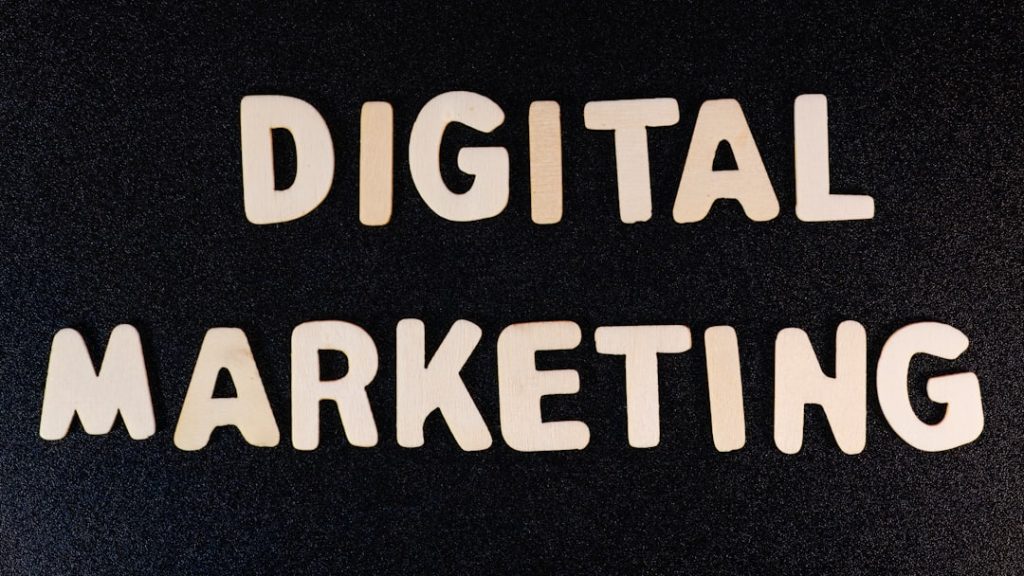Boost Your Career with Digital Marketing Institute
In an era where digital presence is paramount, the demand for skilled digital marketers has surged. Enrolling in a digital marketing institute can be a pivotal step in advancing your career. These institutes offer structured learning environments that are tailored to equip students with the latest tools, techniques, and strategies in the digital marketing landscape. Unlike traditional educational settings, digital marketing institutes focus on practical applications and real-world scenarios, ensuring that students are not only familiar with theoretical concepts but also adept at implementing them in various contexts. Moreover, the curriculum at these institutes is often designed in collaboration with industry experts, ensuring that the content is relevant and up-to-date. This alignment with industry standards means that students are learning skills that are directly applicable to current job markets. By choosing a digital marketing institute, you are investing in a comprehensive education that can significantly enhance your employability and career trajectory. The specialized knowledge gained from such programs can set you apart from competitors who may have a more generalized educational background. Key Takeaways Choosing a digital marketing institute can provide you with the necessary skills and knowledge to excel in the industry. Digital marketing certification can enhance your credibility and open up new career opportunities. Digital marketing training can help you develop a diverse skillset, including SEO, social media marketing, and analytics. Digital marketing plays a crucial role in today’s business environment, helping companies reach and engage with their target audience. Selecting the right digital marketing institute is essential for aligning with your career goals and aspirations. The Benefits of Digital Marketing Certification Obtaining a digital marketing certification can serve as a powerful credential in your professional arsenal. Certifications from reputable institutes signal to potential employers that you possess a validated level of expertise in digital marketing practices. This can be particularly advantageous in a field where the landscape is constantly evolving, as it demonstrates your commitment to staying current with industry trends and best practices. For instance, certifications from organizations like Google, HubSpot, or Facebook not only enhance your resume but also provide you with access to exclusive resources and communities. Furthermore, many employers actively seek candidates with certifications because they often correlate with a deeper understanding of digital marketing strategies and tools. For example, a Google Ads certification indicates proficiency in managing pay-per-click campaigns, which is a critical skill for many businesses looking to enhance their online visibility. In addition to improving job prospects, certifications can also lead to higher salary potential. According to various industry reports, professionals with recognized certifications tend to earn significantly more than their non-certified counterparts, making it a worthwhile investment for anyone serious about a career in digital marketing. How Digital Marketing Training Can Enhance Your Skillset Digital marketing training encompasses a wide array of skills that are essential for success in today’s business environment. From search engine optimization (SEO) to social media marketing, content creation, and data analytics, the breadth of knowledge gained through training can be transformative. For instance, understanding SEO not only helps in improving website visibility but also enhances your ability to create content that resonates with target audiences. This multifaceted approach ensures that you are well-rounded and capable of tackling various challenges that may arise in the digital marketing realm. Moreover, training programs often include modules on emerging technologies and trends such as artificial intelligence (AI) in marketing, programmatic advertising, and influencer marketing. By staying abreast of these developments, you position yourself as a forward-thinking professional who can leverage new tools and strategies to drive business growth. Additionally, many training programs incorporate hands-on projects and case studies that allow you to apply what you’ve learned in real-world scenarios. This practical experience not only solidifies your understanding but also builds your confidence in executing digital marketing campaigns effectively. The Role of Digital Marketing in Today’s Business Environment Digital marketing has become an indispensable component of modern business strategy. With consumers increasingly turning to online platforms for information and purchasing decisions, businesses must adapt their marketing efforts accordingly. Digital channels such as social media, email, and search engines provide unparalleled opportunities for reaching target audiences at scale. For example, companies can utilize targeted advertising on platforms like Facebook or Instagram to engage specific demographics based on interests, behaviors, and location, thereby maximizing their return on investment. Additionally, the ability to track and analyze consumer behavior through digital marketing tools allows businesses to make data-driven decisions. This level of insight enables companies to refine their strategies continuously and respond swiftly to market changes. For instance, using analytics tools like Google Analytics or social media insights can help marketers understand which campaigns are performing well and which need adjustment. As a result, businesses that embrace digital marketing not only enhance their visibility but also foster stronger relationships with their customers through personalized communication and engagement. Choosing the Right Digital Marketing Institute for Your Career Goals Selecting the right digital marketing institute is crucial for aligning your education with your career aspirations. Various factors should be considered when making this decision, including the institute’s reputation, course offerings, faculty expertise, and student support services. Researching alumni success stories can provide valuable insights into the effectiveness of the program and its ability to facilitate career advancement. Institutes with strong industry connections often offer better networking opportunities and job placement assistance. Additionally, consider the flexibility of the program format—whether it is offered online or in-person—and how it fits into your schedule. Some institutes may provide part-time options or evening classes that cater to working professionals seeking to upskill without disrupting their current employment. Furthermore, look for programs that offer hands-on projects or internships as part of their curriculum; this practical experience is invaluable in applying theoretical knowledge to real-world situations. The Importance of Hands-On Experience in Digital Marketing Training Hands-on experience is a cornerstone of effective digital marketing training. Theoretical knowledge alone is insufficient in a field that requires practical application and adaptability. Many digital marketing institutes incorporate live projects, simulations, and case studies
Boost Your Career with Digital Marketing Institute Read More »









